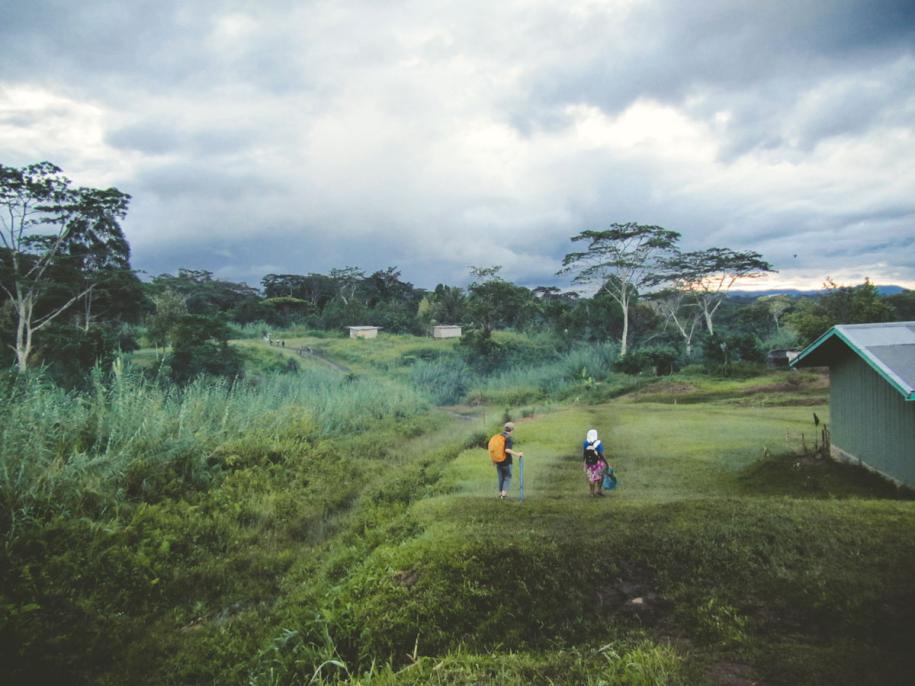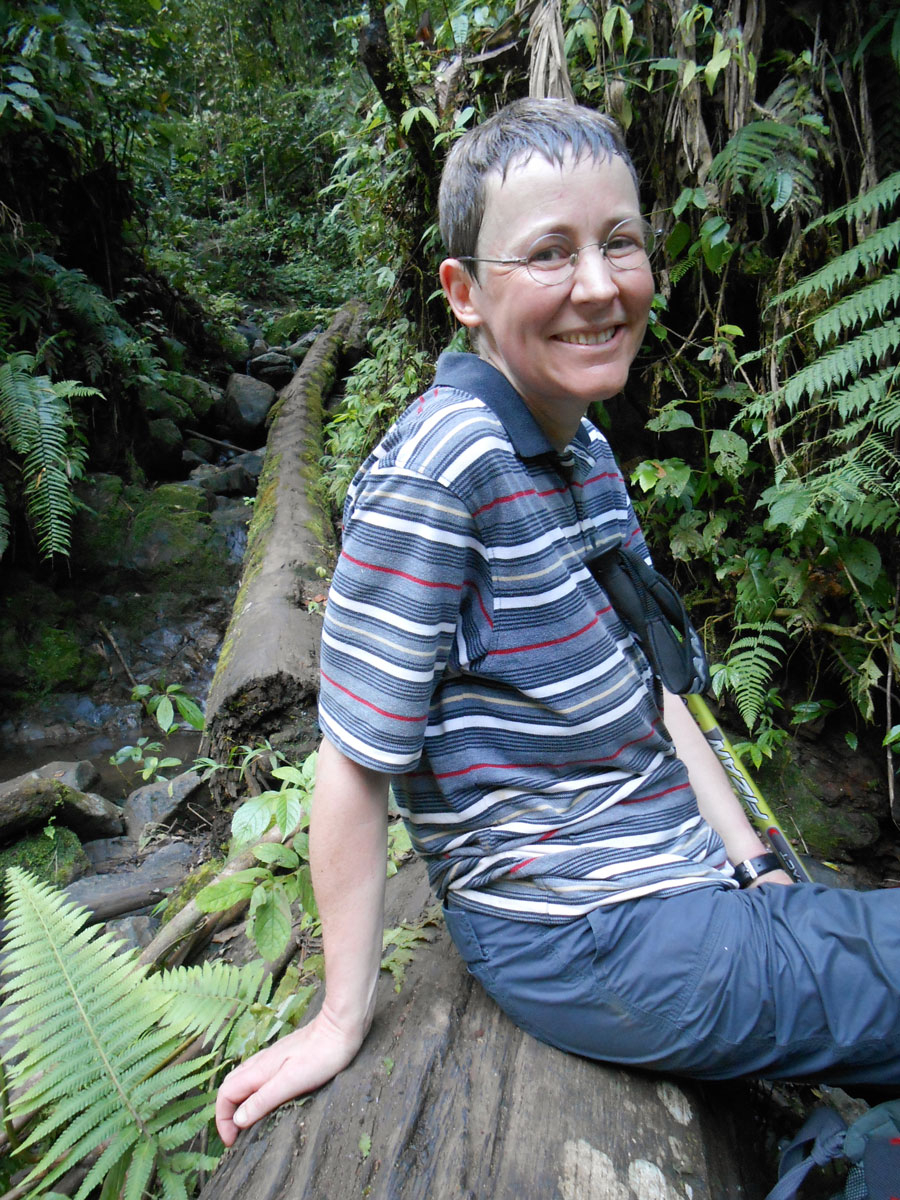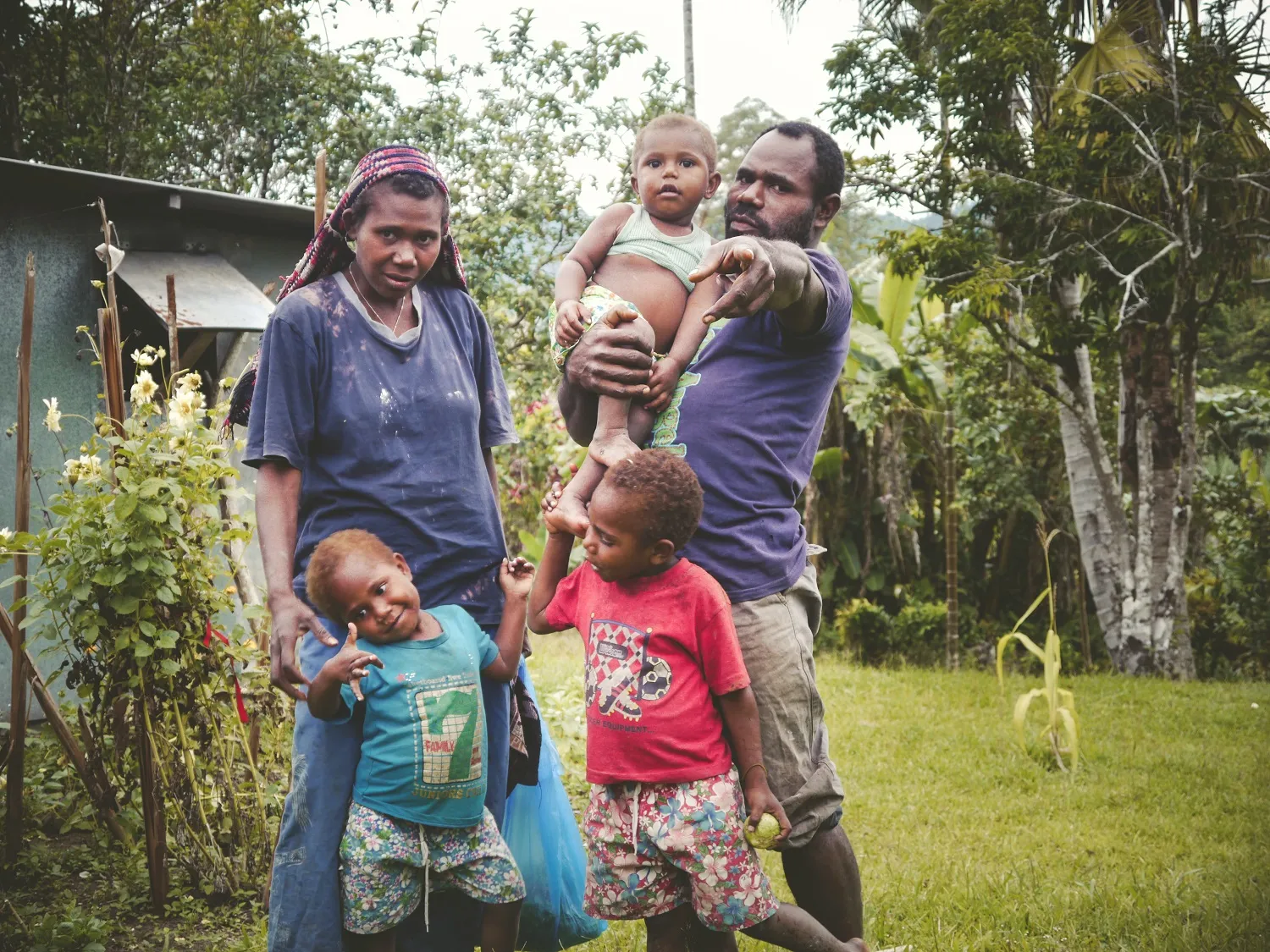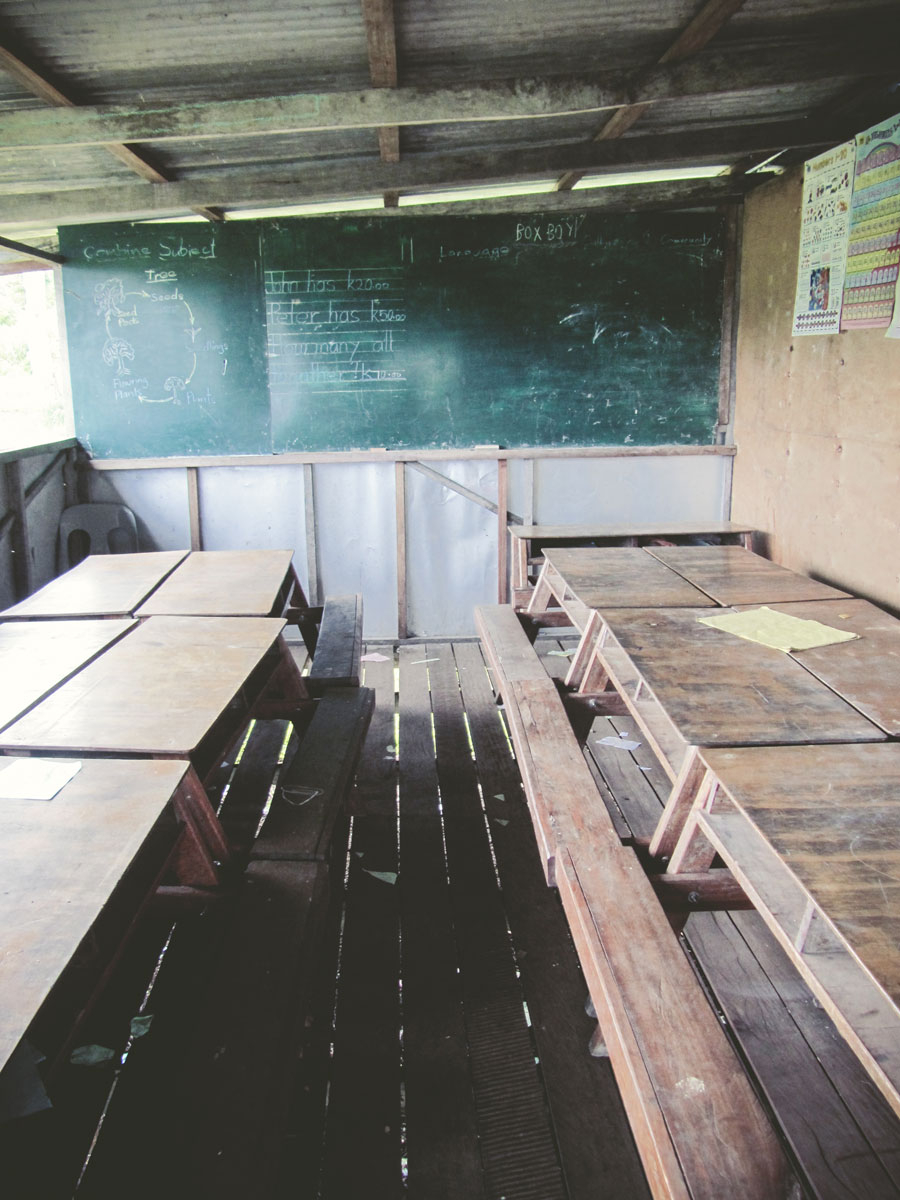
Alexandra Marley
How do children learn to speak?
The linguist Birgit Hellwig is researching the language acquisition of small children – on the example of Qaqet, an endangered language in Papua New Guinea.
Birgit Hellwig has to travel almost 14,000 kilometers to Raunsepna where she does her field research – on an island in the Bismarck Archipelago. But when sitting in her Cologne office, the linguistics professor only has to swivel her chair to be reminded of this beautiful part of the world to the north of Australia: it is suddenly very close to her – if only in the form of a few little Lego figurines on the shelf behind her desk. They portray a father with three children, with a little house in the background and chicken and pigs in the middle. "My staff made this for me," says Birgit Hellwig with a smile. For her doctoral students and student assistants know that every now and then their boss gets a longing for the small village in the middle of the rainforest in the province of East New Britain. The location has become a permanent feature of her research project on language documentation and psycholinguistics for almost ten years now.
... there will soon be very few speakers of Qaqet left around from whom children can learn their native language.
Without electricity or Internet, and the next city almost a day's journey away, doing research there is something of an adventure. In the remote village of 1,000 inhabitants, Birgit Hellwig and her team are conducting a long-term study to find out how two- to four-year-old village children learn their mother tongue, Qaqet. Every year, team members from the University of Cologne leave Germany behind them for a few weeks – or even months – and travel to Raunsepna, equipped with recording devices and small solar panels to generate the power to run them. The Lego figurines represent the dozens of villagers who support the work of Birgit Hellwig and her team on site and who have become friends over the years.
Qaqet belongs to the small family of Baining languages, which is only found in the eastern part of New Britain, and is one of about 3,000 languages worldwide considered to be in danger of dying out. They are only spoken by a few thousand people and are often only passed on by the spoken word, i.e. they have never been written down. Qaqet is still spoken by about 15,000 people. "As the younger generation in the region increasingly speaks Tok Pisin, the main language of Papua New Guinea, there will soon be very few speakers of Qaqet left around from whom children can learn their native language," says Birgit Hellwig.

The linguist Birgit Hellwig in the rainforest near Raunsepna, Papua New Guinea.

A Qaqet family in front of their house in Raunsepna
"Their parents are farmers, who spend a lot of their time tending the crops. The youngest are then taken care of by their siblings, who are often only a few years older themselves. They therefore communicate mainly with their brothers and sisters, from whom they learn their first words and sentences." So they receive no corrections from parents or grandparents; nor, as in western countries, from educators in day-care centers or kindergartens, who make a much greater effort to teach small children to speak correctly than older siblings would ever do.
Sometimes, it could also be observed that infants did not communicate with their parents directly, but only via their older siblings. Hellwig and her team documented all of this in a wealth of video and audio files, and over the years they produced 400 hours of film material. To guarantee a minimum of bias and maximum authenticity, the researchers let the Qaqet families do most of the film and audio recordings themselves.
The project funds not only finance the high travel costs, equipment for field research and the cost of project staff in Cologne, but also the Qaqet people working on the project – who continue to film in the absence of the team from Cologne. For these tasks, they first have to be instructed. The Volkswagen Foundation has been funding the research project since 2014, and will continue to do so until 2022. Birgit Hellwig’s Lichtenberg Professorship has meanwhile been converted into a permanent position by the University of Cologne – as is the aim of this particular funding initiative. Both the funding and the tenured professorship are tribute to Birgit Hellwig, who with one of her other projects is also involved in the Collaborative Research Center "Prominence in Language".
Hellwig explains why the study in East New Britain is groundbreaking: "Almost all existing studies on language acquisition in children are oriented exclusively towards children socialized in the western world. And in most cases, moreover, the focus is on children from academic environments". Hellwig's work therefore closes a gap by documenting how language acquisition takes place in a society in which there may be local schools, but where children’s books and written language are not a natural part of everyday life – and parents are not the main reference persons.

Project staff when transcribing Qaqet
... not a simplified infant-oriented language, but the natural language spoken all around them.
"Because Raunsepna is such a secluded place and surrounded by jungle, before starting at school the children actually grow up monolingual with Qaqet. Only then do many of them learn Tok Pisin." This is why language acquisition can be so well documented in East New Britain. In Kamanakam, a coastal town where Birgit Hellwig and her team also conducted field research, the situation is quite different – "a lot of Tok Pisin is spoken there, mixed with English, so the children grow up multilingual," she explains. In Kamanakam, Qaqet is therefore no longer the dominant language.
Apart from the obvious differences, Hellwig is also interested in the similarities that exist between Qaqet and WEIRD children. Here, the aim is to derive universal aspects of language acquisition in early childhood. For instance, Birgit Hellwig and her colleagues have observed that adults and older children tend to formulate short, correct and complete sentences when they talk to the little ones. They speak more slowly, insert longer pauses, often make use questions ("Where is...?", "What is...?") or imperatives ("Get...", "Look..." etc.). And just as with parents in the WEIRD countries, their tone of voice changes, becoming higher when addressing young children.
What is missing in Qaqet, however, is the typical "baby talk" ("woof-woof", for example), which WEIRD parents sometimes use. "What the little ones hear and what forms the foundation on which they build up their vocabulary is not a simplified infant-oriented language, but the natural language spoken all around them," says Birgit Hellwig.
Our linguist taught and researched at the Australian La Trobe University Melbourne for several years until 2014. She had already worked on Qaqet – Papua New Guinea is only a comparatively short distance from Australia. She now wants to do something for the people there who accompanied and supported her work over the years, and has therefore started a crowd funding campaign: The funds raised will be used to develop and print schoolbooks for the children. There are virtually no books at all in the Qaqet language – only a translation of the Bible. Birgit Hellwig is happy to know that "speakers of Qaqet are themselves very keen to have their language explored and to have books that enable children to learn, read and write their mother tongue in their first years at school."

A classroom in Raunsepna. In the future, the pupils should be able to learn to read in their mother tongue - with Qaqet textbooks.

